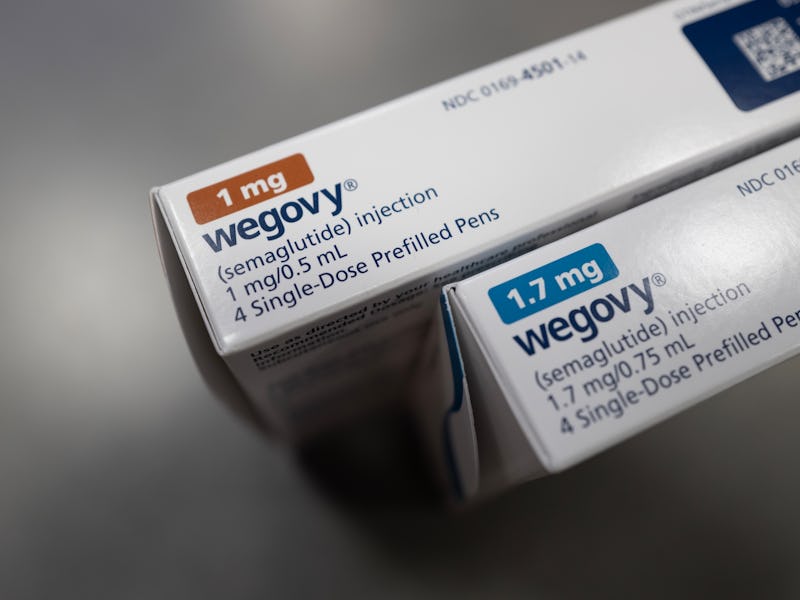The Longest Clinical Trial Yet Of Blockbuster Weight Loss Drug Wegovy Reveals Significant Side Effects
A recent clinical trial provides more insight into the longer term effects of Wegovy.

A new class of weight drugs have skyrocketed over the past few years. Originally developed for diabetes, these GLP-1 agonists have now made their way into the weight loss drug market. A recent survey from KFF found 6 percent of US adults currently have a prescription for a GLP-1 agonist. And at least 25,000 people in the US are starting Wegovy each week, according to its drug maker Novo Nordisk. But given the recent popularity, many experts have raised questions about both the drugs’ effectiveness over time as well as their potential for long term side effects. A recent clinical trial both raised concerns about side effects of one such drug — and teased surprising benefits beyond weight loss.
A study of Wegovy, called the SELECT cardiovascular outcomes trial, was recently presented at the European Congress of Obesity (ECO). Led by researchers at University College London and funded by Novo Nordisk, the trial assessed about 17,600 adults over 45 years old who had existing cardiovascular risk and had obesity or who are overweight. These participants were enrolled from 2018 to 2021, and spanned multiple countries.
17 percent of patients on the drug left the trial because of side effects.
Researchers assessed weight loss and found that those that received semaglutide (the main ingredient in Wegovy) continuously lost weight over 65 weeks, and the weight loss sustained for four years. On average, weight loss was a little over 10 percent: that is, patients lost an average of nearly 10 percent of their body weight. (A previous clinicial trial showed about 15 percent average weight loss over 68 weeks, but the study’s outcomes were a bit different).
In the Select trial, “clinically meaningful” weight loss occurred across sexes, races, body sizes, and regions, according to the study.
However, 17 percent of patients on the drug left the trial because of side effects (compared to a significantly smaller 8 percent on the placebo). These effects included nausea, diarrhea, vomiting, and constipation, and were most often felt during the initial months of treatment.
The drug also reduced major cardiovascular events by 20 percent.
The drug also reduced major cardiovascular events — such as heart attack, stroke, or heart-related death — by 20 percent. Interestingly enough, these cardiovascular benefits were evident in participants who didn’t lose weight, and the benefits also didn’t depend on how much participants weighed before starting the drug. Researchers are still unclear why this happens, and are trying to better understand the mechanisms.
The study suggests the potential for the drug to be used for other purposes. The results could also help make a case for more widespread insurance — currently, the drug costs a little over $1000 per month.